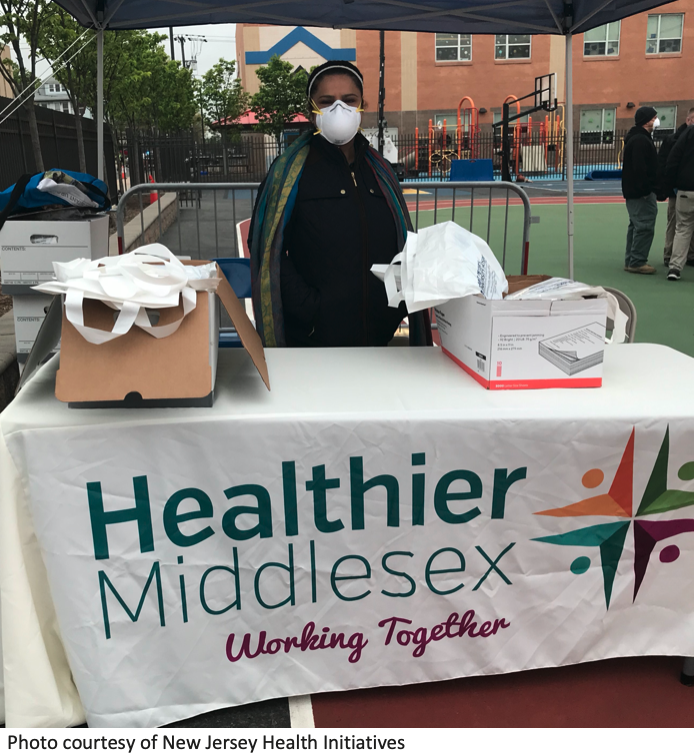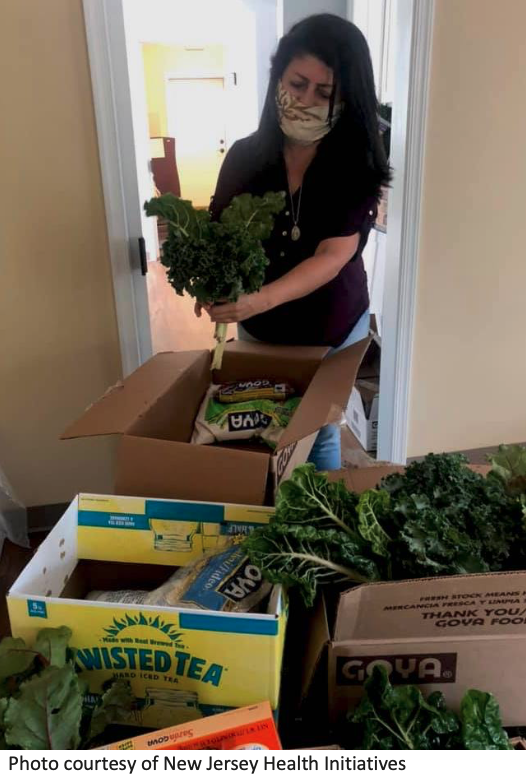Site Search
- resource provided by the Forum Network Knowledgebase.
Search Tip: Search with " " to find exact matches.
These news articles show our members’ responses to the coronavirus pandemic, including announcements, emails, blogs, grants and other resources. If you have items to add, please email us.
Actions and Announcements
Audible Creates Global Center for Urban Development and Hires Aisha Glover to Help Lead It
Russell Berrie Foundation Post: Our Response to COVID-19
Campbell Soup to pay hourly employees premium during outbreak
Post: Our Response to COVID-19
Geraldine R. Dodge Foundation
Dodge signs CoF pledge
Grunin Foundation 3/13 COVID-19 Announcement and 3/31 COVID-19 Update
Johnson & Johnson’s lead COVID-19 vaccine candidate shots for early 2021 authorization
Robert Wood Johnson Foundation
Culture of Health Blog: Handwashing to Slow the Coronavirus Pandemic
Opinion: Racism is the other virus sweeping America during this pandemic by Julie Morita, M.D
Opinion: Disabled Americans can’t be a COVID-19 afterthought by Dr. Richard Besser
Culture of Health Blog: Incarceration Rates: A Key Measure of Health in America
Opinion: In Covid-19 Crisis, Philanthropy’s Attention Must Focus on People With Disabilities
Brief: Health Equity Principles for State and Local Leaders in Responding, Reopening & Recovering from COVID-19
Culture of Health Blog: Lessons for an Equitable COVID-19 Response and Recovery
Kessler Foundation has produced two COVID related podcasts:
Practical Tips to Help Survive the Pandemic as a Parent of a Child with Autism
COVID-19 and Spinal Cord Injury: Minimizing Risks for Complications
New Jersey Council of Humanities Op-ed: Staying Human During the Pandemic
New Jersey Health Initiatives’ Deputy Director of Programs, and CNJG Board Member Diane Hagerman penned “Collaboration across county lines is key to a healthy New Jersey” on NJ Spotlight.
New Jersey Council for the Humanities and New Jersey Historical Commission present a webinar series for cultural nonprofits navigating the COVID-19 pandemic
New Jersey Economic Development Authority assists more than 10,000 small businesses impacted by COVID-19
New Jersey State Council on the Arts partners with ArtPride New Jersey Foundation on “Keep Jersey Arts Alive” campaign.
Newark Arts and the City of Newark Retools Its Ambitious Arts Grant Program to Respond to COVID-19
Nicholson Foundation Email to Grantees
Nicholson honors their own Colette Lamothe-Galette, lost to COVID-19
OceanFirst Foundation and Grunin Foundation along with Townsquare Media Launch Acts of Kindness Campaign
Subaru teams up with TerraCycle on PPE recycling
Turrell Fund Email to Grantees about CARES Act
Turrell Fund manages new Passaic County Pandemic Partnership hosted at the Community Foundation of New Jersey
United Way of Greater Mercer County Op-ed message from Sandra Toussaint
Valley National Bank offers Community Pledge CD to help donate and save at the same time
Resources
New Jersey State Council on the Arts Resources for Artists and Arts Organizations
Video: Hear from recognizable native New Jersey voices about the importance of donating to the New Jersey Pandemic Relief Fund
Nonprofit Finance Fund's Annual Survey chronicles the challenges facing the nonprofit sector and calls out some of the targeted investments we can start to agree on as a society to salvage the investment we have collectively made in our social infrastructure. We believe that a coordinated intervention now will not only better prepare us for inevitable future economic crises; it can lead to a happier, healthier community for us all.
Strategic asset allocation is arguably one of the most important, yet least advanced, aspects of investing. The Investment Strategy Group (ISG) in the Goldman Sachs Investment Management Division has developed a new approach to strategic asset allocation, which leverages the idea that long-term investment returns derive from multiple distinct sources called “return-generating factors.” This multi-factor approach is designed to help investors better understand the key sources of long-term return across asset classes and to increase the precision of long-term risk and return estimates. It also provides investors with a new way to think about portfolio diversification, allowing them to focus not only on diversification across asset classes but also
on diversification across the underlying sources of return.
Join us for Foundations on the Hill, where foundation executives and staff, board members, and philanthropic leaders meet with their federal lawmakers in Washington. Presented by United Philanthropy Forum, the gathering brings foundation leaders together with their elected representatives to discuss key issues of importance to foundations and philanthropy.
The Council of New Jersey Grantmakers is delegation captain for New Jersey participants. CNJG will organize and schedule the congressional meetings. This opportunity is a valuable benefit of CNJG membership that helps raise lawmakers’ awareness of the vital work you do and inform them about issues Council members care about. Read about last year’s CNJG Foundations on the Hill visits to see what we accomplished. If you are interested in attending or need more information, please contact Theresa Jacks.
The aim of Foundations on the Hill is to:
- Inform and educate Congress about philanthropy
- Create visibility for foundations and philanthropy on Capitol Hill
- Advocate on issues affecting foundations
- Encourage Congress to view foundations as resources on key public policy issues
- Build CNJG’s relationships with lawmakers and their staff
Why attend?
It is critical that elected officials hear from their foundation constituents. On behalf of New Jersey grantmakers, the Council is pleased to have developed relationships with our representatives over the years as a result of FOTH. A meeting in Washington shows elected officials an extra level of dedication and commitment to your cause and the work of the philanthropic sector.
View the FOTH Agenda
The Council will plan meetings with our US Senators and House members in the afternoon of a day still to be determined.
REGISTRATION
Registration for FOTH is available on the United Philanthropy Forum website.
The registration fee is $297.00 per person Early Bird Special Until January 31st. $397 after Jan. 31st.
CNJG members attending FOTH will need to make their own hotel reservations.
HOTEL INFORMATION
JW Marriott Washington DC
1331 Pennsylvania Avenue NW
Washington, DC 20004
We have a room block at the JW Marriott Washington DC, which is within walking distance of the Hill. The rooms are available for $349/night plus state and local taxes currently at 15.95% and the rooms are available until 5:00 pm ET, Friday, February 07, 2025. Please note that our room block often sells out before the cutoff date, so we recommend making your hotel reservation as soon as possible. You can reserve your room online, or by calling 1 202-393-2000, and asking for the “United Philanthropy Forum” rate.
There are many ways to start a giving circle. These 10 steps can give you a starting point and a basic roadmap.
Step One - Set Goals and Structure
Bring your group together for a first meeting. Take time at this first meeting to discuss what a giving circle is. Begin the process of setting goals and structure now. Some of the decisions that you may want to discuss at this meeting are:
- How many times will the group meet?
- How will we determine our funding focus?
- Where do we hold meetings?
- Is there a limit on number of participants?
- What is the size or range of the financial contribution each member will make?
- What is the time commitment?
Remember: giving circles go beyond individual “pet” charities to pool your resources for a common goal with greater impact. Members will contribute time as well as dollars in the process.
Step Two – Establish Mission and Commitment
Once the group sets up regular meetings, it is a good idea to:
- Establish a mission
- Agree on common goals and objectives
- Name your group
- Set up an operating structure
Remember: The contribution amount can vary. Circles requirements vary – starting at $10 and going up to $25,000 or more. The group decides what is reasonable for their circle. It is important for the group to agree on the final amount.
Many circles choose one contribution level for everyone. Since no single vote on a potential grantee should outweigh another, many circles find this arrangement the best. Other circles find that a tiered giving structure or anonymous giving meets their needs.
Step Three – Decide Where to Place Your Collective Dollars
At the start of each year, members should make a financial commitment to the giving circle (i.e., write the check). There are options for where your circle members’ money can sit. There are benefits to all the options, depending on the circle’s needs, experience, and structure. Giving circles generally have no administrative “overhead.” Volunteers administer the circle and all dollars go to the designated nonprofit/s. However, some circles have found it useful to pay for administrative costs. They then receive a level of service that they cannot provide for themselves. You can:
- Open a joint bank account. (Check with a professional advisor on the tax implications)
- Partner with an organization that can act as a financial administrator of the funds.
- Establish a Donor Advised Fund at a Community or Public Foundation.
- Create a public foundation.
- Write individual checks to the chosen nonprofit/s.
- Explore other creative options that interest the group.
Step Four – Establish an Issue/Focus Area
This step may take significant discussion. Encourage the group to be as specific as possible. For example, if the group is interested in health issues for women – what specific health issues, age range or demographic? In what geographic area will you focus?
You may also want to invite “experts” to talk to the group. Some circles assign group members to investigate particular issues. Consensus is important when a giving circle decides on its focus area.
Step Five – Create Smaller Work Groups
Having members of the group volunteer for particular tasks will build personal commitment. Smaller groups make task members with different tasks.
Step Six – Develop Process and Criteria for Funding
You may decide to ask for written applications from a charity. Or, you may evaluate a group in another way. Some questions to consider as you determine your funding philosophy:
- How will we decide who receives funding?
- Will we review grant applications?
- Will we visit specific organizations that could “qualify”?
- What kind of a report will we want at the end of the project period from the recipient of these funds?
This process can be simply choosing a recipient organization based on information you gather. Or the process can be more involved. Some circles review written applications, visit the organizations and ask for a presentation on the work the organization does.
If your group is unsure of how to assess an organization, you may want to consider asking someone with a background in grant making or nonprofit administration to give the group assistance.
It is also important at this stage to establish final evaluation criteria. How will you measure your giving circle’s impact? How will the organization/s that receive funding measure the impact of this funding?
Note: Many circles try to match the level of effort they require from the grantee to the amount of money that they have to give. Nonprofits are often understaffed and short on time. It can be a burden for them to create lengthy proposals and reports for relatively small amounts of money.
Step Seven – Define Partnership with Recipient of Grant Award
Do members of your circle want to volunteer for an organization you have funded? Your circle should define in what ways they could offer assistance. Web development, finances, program planning, legal work, and mentoring are some examples of how your members might get involved. Be sure to be clear with the expectations of all involved in this new partnership.
Step Eight – Review Potential Recipients
Conducting site visits with potential grantees can be helpful in the grantmaking process. This is the time to ask questions, get clarification, and see the organization in action.
The group should set aside plenty of time to discuss the potential grantees. Members may feel strongly about funding different organizations. There needs to be time to go through this process to reach agreement.
Smaller giving circles often use a consensus model for decision-making. Larger circles tend to rely on committees and voting systems.
Be willing to take a risk by funding a start-up nonprofit, or by funding a nonprofit that may seem unconventional to traditional funders. Remember you are the “Board of Directors” and can set your own guidelines.
Step Nine – Make Grant Awards
Immediately following the group’s decision, alert the recipient and let them know when they can expect a check. It is good practice to let organizations who are not receiving funds from your circle know of your decision, too.
Step Ten – Evaluate Your Giving Circle
On a regular basis, examine the short term and long term goals of the giving circle. This will help develop a sense of satisfaction with the work you are doing and show how your contributions have made a difference. Try to determine what impact the group has had. Candid feedback from the organizations you have funded and partnered with will be an important ingredient of this process.
BD (Becton, Dickinson and Company), a leading global medical technology company, today announced a $1 million commitment over five years to UNICEF USA in support of UNICEF's work to uphold the rights of all children and help every child survive and thrive. The cash donation will be used to support UNICEF's efforts to eliminate Maternal and Neonatal Tetanus (MNT) in at-risk countries around the world. In 1997, BD was the first U.S.-based corporation to establish a maternal and newborn tetanus program with UNICEF.
With the support of BD, UNICEF is working to eliminate maternal and neonatal tetanus worldwide by seeking to vaccinate all women and girls of childbearing age, by promoting clean childbirth delivery practices such as clean umbilical cord cutting methods and by utilizing surveillance to enhance health professionals' understanding of the circumstances under which tetanus can be transmitted. Between 2000 and 2018, newborn deaths from MNT have declined by 88 percent.1
As the first and longest-serving corporate partner in UNICEF USA's campaign to eliminate MNT, BD has now provided or committed more than $10.8 million in cash and product donations to the organization, including 55 million BD SoloShot™ Auto-Disable Syringes and BD Uniject™ Non-Reusable Devices.
"The initiative to help eliminate MNT was the first philanthropic program established by BD," said Tom Polen, CEO and president, BD. "Over the past 24 years, the MNT initiative has grown into an international public-private partnership that includes governments, global humanitarian organizations, non-profits and corporate partners, all with one mission to prevent unnecessary deaths from maternal and neonatal tetanus. This $1 million commitment continues our collective efforts to expand access to health care among the vulnerable populations who need it most and is part of our broader purpose – advancing the world of health."
The New Jersey Council for the Humanities has awarded 18 grants totaling $216,319 in its most recent grant round. These funds will support a diverse array of projects in nine counties across the Garden State, highlighting NJCH’s ongoing commitment to fostering the public humanities.
Of the 18 awarded projects, five had their beginnings in prior NJCH grants or programs.
Two organizations, the AIDS Resource Foundation for Children and the Hispanic Family Center of Southern NJ, received funding for projects that expand upon the Dear Rosa Project, an oral history initiative amplifying the voices of women living with HIV/AIDS that was funded by a prior NJCH grant. Additionally, Clinton Hill Community Action and Raíces Cultural both received funding to extend projects initially developed in NJCH’s Community History Program. And Truehart Productions received funding to produce a new episode of the PBS documentary series “The Price of Freedom,” which previously received developmental funding from an NJCH incubation grant.
“We are thrilled to see the continued impact and evolution of projects that have received our support in the past. Their success demonstrates the profound influence of our programs on the public humanities in New Jersey,” NJCH Executive Director Carin Berkowitz said. “The diverse and dynamic projects funded in this round will significantly contribute to the understanding and appreciation of our state’s rich cultural heritage.”
As artificial intelligence (AI) and technological advances take on an increasingly prominent role in our society, BIPOC and immigrant communities face the threat of biases and outright hostilities being encoded and automated into surveillance, enforcement, and judicial tools. At the same time, creative leaders in the nonprofit sector are leveraging and building new technologies to better deliver culturally responsive services at scale to their communities. In this two-part series on the intersection of AI, technology and immigrant justice, GCIR invites funders to deepen their knowledge in the space as well as gain insights on how philanthropy can deploy investments that build the movement’s capacity to respond to emergent threats and opportunities.
Part 2: Tech for Good: Building Innovative Tools to Serve Immigrant Communities
In the hands of creative and justice-driven leaders, computer technologies hold significant potential for advancing the public good. Across the country, nonprofits are harnessing the power of AI and building innovative tech tools to bridge gaps in culturally responsive services while expanding their organizational impact. From accessible legal tools, to on-demand translation services, to tech-based workforce development, the movement for immigrant justice is leveraging technology in creative ways to transform and scale service delivery. In this discussion, funders will learn from talented innovators about the tools they have built and how philanthropic investments can catalyze this burgeoning field.
Speakers:
Swapna Reddy, Co-Founder & Executive Director, ASAP
Daisy Magnus-Aryitey, Co-Founder & Co-Executive Director, Code the Dream
Bartlomiej Skorupa, Co-Founder & Chief Operating Officer, Mobile Pathways
Alex Mitchell, Product Manager, Tarjimly
Native Voices Rising is a joint research and re-granting project of Native Americans in Philanthropy and Common Counsel Foundation. This report focuses on the practices and challenges of community organizing and advocacy, focusing on the need for increased investment in and sustained support for American Indian, Alaska Native and Native Hawaiian communities.
I can't believe October is already here! We are deep in planning for the CNJG 2024 Annual Meeting & Holiday Gathering, and I'm thrilled to invite you to be a part of this special event!
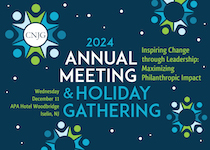 Mark your calendars for Wednesday, December 11, as we come together at the APA Hotel Woodbridge with over 150 Council members and special guests to celebrate the holiday season, welcome new members, and host a brief business meeting to elect trustees. It's also the perfect time to connect with colleagues and friends, old and new, while participating in a thought-provoking discussion about the ever-important topic of leadership in philanthropy.
Mark your calendars for Wednesday, December 11, as we come together at the APA Hotel Woodbridge with over 150 Council members and special guests to celebrate the holiday season, welcome new members, and host a brief business meeting to elect trustees. It's also the perfect time to connect with colleagues and friends, old and new, while participating in a thought-provoking discussion about the ever-important topic of leadership in philanthropy.
This event is the one time each year where New Jersey’s philanthropic community comes together to connect, network, learn, and celebrate our collective work. It's a time to reflect on our impact, recharge with new ideas, and plan for the year ahead. Guided by the CNJG Signature Program Committee’s vision for this event, our focus this year is on leadership: Inspiring Change through Leadership: Maximizing Philanthropic Impact. Our morning workshop will explore the New Jersey Principles for Philanthropy – our equity principles emboldening leadership in action, followed by our keynote presentation featuring Amalia Brindis Delgado, Chief Strategy Officer, Panta Rhea Foundation, focused on transformative leadership transitions. It's a topic that feels more important than ever, and I can't wait for the conversations it will inspire.
The Annual Meeting is truly a highlight of the year. In addition to your participation, I invite you to consider supporting the Annual Meeting of Members through a sponsorship, grant, or contribution. Whether you've sponsored before or are considering it for the first time, this is an incredible opportunity to show your support for CNJG, while also raising visibility for your organization. We offer a variety of sponsorship options to fit any level of interest, and we're happy to tailor a package to meet your needs. Your support would help underwrite this vital event, ensuring it continues to serve as a place where our sector can grow stronger together. It's a valuable opportunity not only to give back to CNJG, but to highlight your commitment to the philanthropic community and its ongoing work in New Jersey.
If you'd like more information regarding sponsorship, please reach out to me via e-mail.
A big thank you to our sponsors to date - we couldn't do this without you! Special thanks to Signature Sponsor – Prudential; Contributing Sponsors – Devils Youth Foundation and Robert Wood Johnson Foundation; Supporting Sponsor – Grunin Foundation; and Colleague Sponsor – Horizon Blue Cross Blue Shield of New Jersey.
Thank you for your continued engagement with CNJG. I'm looking forward to hearing from you soon and can't wait to see you at the CNJG Annual Meeting & Holiday Gathering in December. Until then, enjoy the beauty of fall!
Warmly,
Theresa Jacks, President and CEO
Council of New Jersey Grantmakers
Six million immigrants in the US have jobs that could increase their risk of contracting the virus -- from physicians and home health aides to agriculture and food production workers. Another 6 million work in areas that have suffered major financial loss, including the restaurant and hospitality industry, in-home childcare, agriculture, and building services.
Yet, documented and undocumented immigrants are ineligible for federal relief funds and government-sponsored safety-net programs. Many “essential” workers lack health insurance. Language barriers often make getting services difficult. And, fear of repercussion if they test positive for COVID or uncertainty around immigrant policies prevent many immigrants from even seeking assistance.
During this webinar briefing, we will hear from Abel Rodriguez, Director for the Center on Immigration and Assistant Professor of Religion, Law, and Social Justice at Cabrini University and Sara Cullinane, Director of Make the Road New Jersey.
Topics will include:
• How immigrants and their families have been impacted by COVID, nationally and in our state.
• Supporting immigration policies and programs that advance the social and economic well-being of immigrant populations.
• Efforts in New Jersey communities to provide direct support, education, and other needed resources to immigrants during the pandemic.
Nearly 1 in 4 New Jersey residents is an immigrant. And despite their vital importance to this state and our country’s culture and economy, immigrants are often left out of programs and denied services that are critical for recovery. Join us for an important briefing on why your organization’s response to COVID must uplift immigrants and their families – now and for the future.
Cost: Free for CNJG Grantmakers. $50 for Non Member Grantmakers
Webinar Video

Retributing Power by Simplifying and Streamlining Processes
Sisters of St. Joseph Health & Wellness Foundation
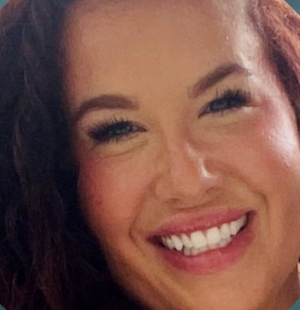 When Beth Collins joined the Sisters of St. Joseph Health and Wellness Foundation as the new Executive Director, she knew that the foundation could be doing more to support its nonprofit ecosystem. With a background in direct service, Beth remembered when she was on the other side of the funding relationship – sometimes spending hours writing lengthy application materials or digging up data to meet reporting requirements, all while juggling her never-ending to-do list. By aligning the values of Trust-Based Philanthropy to the virtues and mission of the Sisters of St. Joseph, she has catalyzed a shift toward redistributing power in its community partnerships.
When Beth Collins joined the Sisters of St. Joseph Health and Wellness Foundation as the new Executive Director, she knew that the foundation could be doing more to support its nonprofit ecosystem. With a background in direct service, Beth remembered when she was on the other side of the funding relationship – sometimes spending hours writing lengthy application materials or digging up data to meet reporting requirements, all while juggling her never-ending to-do list. By aligning the values of Trust-Based Philanthropy to the virtues and mission of the Sisters of St. Joseph, she has catalyzed a shift toward redistributing power in its community partnerships.
This power shift began when Beth started a conversation about values with the foundation board. By approaching the board with curiosity and bringing the voice of the community into the conversation, she set the tone for trust, openness, and an ongoing dialogue. The Foundation is now working toward fully embodying its values in its practices. The Sisters of St. Joseph have expanded their general operating support portfolio, shifted the bulk of the application process from applicants to the Foundation, replaced written reports with honest conversations, and created more opportunities for the public to provide feedback and engage in candid dialogue with the board. Focusing on only the essential information for applications and reporting has enabled staff to redirect their time and energy to develop wholehearted relationships with community partners. By starting with the why, Beth is leading the Foundation toward a clear vision for the how: “Trust Based Philanthropy is about humility – at Sisters of St. Joseph, we recognize that we are just one piece of the puzzle – and we are encouraging others to think outside of themselves.”
Offering Support Beyond the Check
Liberty Hill Foundation
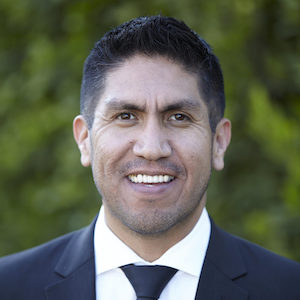 A community-funded foundation since day 1, Trust Based Philanthropy is at the core of the Liberty Hill Foundation. Centered on social justice campaigns, research, and policy initiatives designed to drive systemic change, Liberty Hill Foundation refers to itself as a "Laboratory for Social Change Philanthropy”. When Julio Marcial stepped into the role of Senior Vice President of Programs, he looked beyond the funding and considered the myriad of ways the foundation can support community partners beyond the check by connecting them to other funders and donors. As a member of several pooled funds in Los Angeles, Liberty Hill Foundation proactively seeks opportunities that will benefit their community partners. The Foundation has introduced many funders in their circle to Trust Based Philanthropy principles – this has sparked several conversations at other foundations serving Los Angeles county, several of which have since shifted their practices. Beyond private and public foundations, Marcial advocates for a push to Trust Based Philanthropy in California state funding agencies.
A community-funded foundation since day 1, Trust Based Philanthropy is at the core of the Liberty Hill Foundation. Centered on social justice campaigns, research, and policy initiatives designed to drive systemic change, Liberty Hill Foundation refers to itself as a "Laboratory for Social Change Philanthropy”. When Julio Marcial stepped into the role of Senior Vice President of Programs, he looked beyond the funding and considered the myriad of ways the foundation can support community partners beyond the check by connecting them to other funders and donors. As a member of several pooled funds in Los Angeles, Liberty Hill Foundation proactively seeks opportunities that will benefit their community partners. The Foundation has introduced many funders in their circle to Trust Based Philanthropy principles – this has sparked several conversations at other foundations serving Los Angeles county, several of which have since shifted their practices. Beyond private and public foundations, Marcial advocates for a push to Trust Based Philanthropy in California state funding agencies.
The Liberty Hill Foundation embraces itself as a fundraiser for its nonprofit partners and its responsibility for the Los Angeles community. The Foundation raises the funds and opens doors for nonprofits and then “steps out of the way,” says Julio. According to Julio, partnerships are the key to maximizing trust and impact in the community: “We can't do this without our partners, peers, and donors. We need to call each other out – and to call each other in.”
Leading with Trust, Transparency, and Responsiveness
Headwaters Foundation
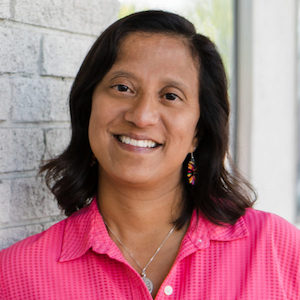 Headwaters Foundation is a health-conversion foundation working side by side with the community to achieve better outcomes towards a healthy and thriving Western Montana. Brenda Solorzano, CEO of Headwaters, has been at the helm of the foundation since its inception in 2017. With over 20 years of experience in traditional philanthropy, Brenda began asking big questions about standard philanthropic practices. Brenda is especially focused on tapping into the collective knowledge and experience of the community to create impactful systems. Early on in her tenure as CEO, Brenda shared her vision for Trust Based Philanthropy with the foundation’s board and they have supported her as she’s stewarded the foundation through its strategic planning process.
Headwaters Foundation is a health-conversion foundation working side by side with the community to achieve better outcomes towards a healthy and thriving Western Montana. Brenda Solorzano, CEO of Headwaters, has been at the helm of the foundation since its inception in 2017. With over 20 years of experience in traditional philanthropy, Brenda began asking big questions about standard philanthropic practices. Brenda is especially focused on tapping into the collective knowledge and experience of the community to create impactful systems. Early on in her tenure as CEO, Brenda shared her vision for Trust Based Philanthropy with the foundation’s board and they have supported her as she’s stewarded the foundation through its strategic planning process.
Community input and feedback was important to Brenda. With the board’s support, she took this a step further by engaging the community as co-creators and decision-makers. To accomplish this, Brenda invited 600 nonprofit representatives across the state to the table to share their thoughts. Brenda asked each person 2 questions: “If you were in my seat, what do you think the foundation should prioritize?” and “What’s the biggest challenge in your work?” By creating a space for open dialogue, Brenda took the pulse of the real challenges in Western Montana communities.
Soon after her introduction to Western Montana’s nonprofit sector, Brenda called on the community again to help design the foundation’s strategic focus. She hosted a series of public community meetings in each of Montana’s 15 counties. Headwaters facilitated a design-thinking process for members to discuss their challenges and co-create solutions. Two key strategies emerged: upstream systems and social change determinants prioritizing children and Indigenous populations.
Brenda engaged the community as decision-makers as Headwaters explored partner organizations for the foundation’s child thriving portfolio. The community nominated and voted on non-profit partners in a live meeting. This was a new approach and even some staff were nervous about the outcome. Headwaters proudly reports that a few years later, many of the organizations selected have grown to become blossoming collaborations. Grounded in Trust-Based principles since its inception, Headwaters is an exemplar of what it means to Do Good Better. Brenda says, “Trust Based Philanthropy is about starting from a place of trust.”
Co-Creating Goals by Soliciting and Acting on Feedback
T. Rowe Price Foundation
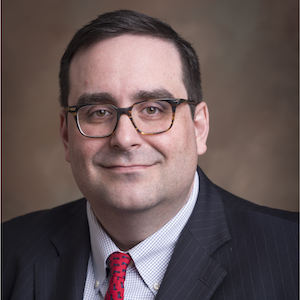 When John Brothers joined T. Rowe Price Foundation as President in 2015, the Foundation’s home in Baltimore was in the midst of social unrest following the tragic murder of Freddie Gray, a 25-year old Black man arrested over his legal possession of a knife and sustained injuries while being transported by the Baltimore Police. The T. Rowe Price Foundation recognized that it was a critical time to pause and listen to the Baltimore community. Within months of joining the Foundation, John Brothers and the Foundation team began an ongoing dialogue within Baltimore – in homes, places of worship, and community spaces. By leaning into the expertise and experience of community partners, John developed the T. Rowe Price’s Theory of Philanthropy, which mirrors principles to those similar to Trust-Based Philanthropy.
When John Brothers joined T. Rowe Price Foundation as President in 2015, the Foundation’s home in Baltimore was in the midst of social unrest following the tragic murder of Freddie Gray, a 25-year old Black man arrested over his legal possession of a knife and sustained injuries while being transported by the Baltimore Police. The T. Rowe Price Foundation recognized that it was a critical time to pause and listen to the Baltimore community. Within months of joining the Foundation, John Brothers and the Foundation team began an ongoing dialogue within Baltimore – in homes, places of worship, and community spaces. By leaning into the expertise and experience of community partners, John developed the T. Rowe Price’s Theory of Philanthropy, which mirrors principles to those similar to Trust-Based Philanthropy.
T. Rowe Price’s Theory of Philanthropy centers long-term impact by strategic investments in areas identified in partnership by those who live and work within the Baltimore community. The Foundation and community partners co-define a vision for success and community partners are trusted with the agency to make decisions in pursuit of shared goals. T. Rowe Price’s Theory of Philanthropy is considered a distinct model among other large corporate foundations. When asked how John managed to gain board consensus on this novel approach, he characterized the Theory of Philanthropy with a business metaphor: “People don’t buy stocks for an iPhone – they invest in Apple.” The Foundation focuses on supporting nonprofit organizations in a holistic way. By listening to the community early on, John shifted the Foundation’s approach from funding a variety of important, yet disconnected, programs to a co-creating strategic investment of capital and other support on more focused efforts that will have a lasting impact. To learn more please visit troweprice.com/foundation.
Doing Good Better, a partnership of the Council of New Jersey Grantmakers and the New Jersey Center for Nonprofits, is a community of funders and nonprofits taking action against the power imbalances and racial inequities in philanthropy, nonprofits, and government.
This advocacy and civic engagement toolkit is designed for private foundations that want to educate and encourage their grantees about getting involved in civic and policy activities to increase organizational capacity and impact. While its primary focus is on the grantmaking activity of foundations, the toolkit also addresses rules and guidance for policy involvement by foundation officials acting on behalf of their foundations.
This advocacy and civic engagement toolkit is designed for community and public foundations that want to educate and encourage their grantees about getting involved in civic and policy activities to increase organizational capacity and impact. While its primary focus is on the grantmaking activity of these foundations, the toolkit also addresses rules and guidance for policy involvement by foundation officials acting on behalf of their foundations.

